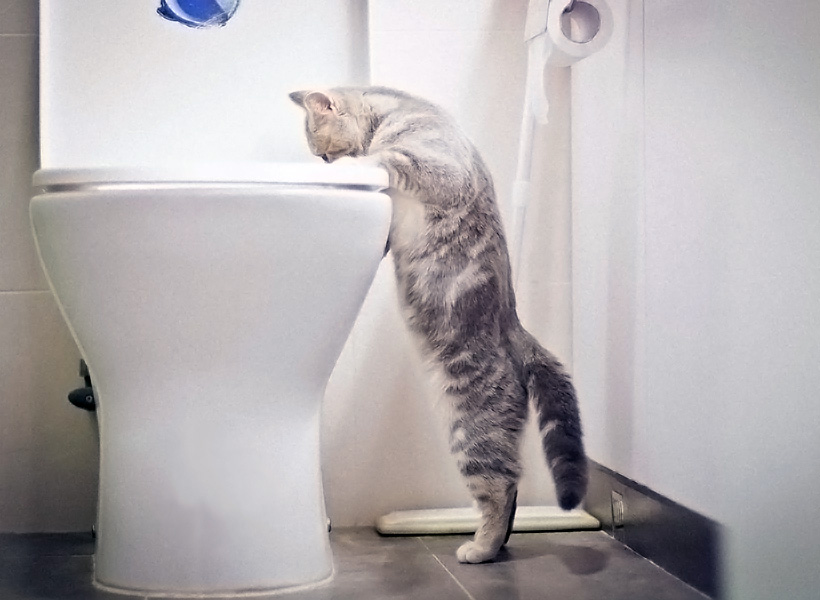Potential Risks of Flushing Cat Poop Down Your Toilet - Tips for Better Handling
Potential Risks of Flushing Cat Poop Down Your Toilet - Tips for Better Handling
Blog Article
Right here in the next paragraph you can locate more amazing data about How to Dispose of Cat Poop and Litter Without Plastic Bags.

Intro
As cat owners, it's vital to bear in mind exactly how we deal with our feline good friends' waste. While it might seem convenient to flush feline poop down the toilet, this technique can have damaging consequences for both the setting and human health.
Ecological Impact
Flushing feline poop presents hazardous virus and parasites into the water, posing a substantial danger to aquatic ecological communities. These impurities can adversely impact aquatic life and compromise water top quality.
Wellness Risks
Along with ecological concerns, flushing pet cat waste can likewise pose health dangers to people. Cat feces may have Toxoplasma gondii, a bloodsucker that can trigger toxoplasmosis-- a potentially extreme ailment, especially for expectant ladies and people with weakened immune systems.
Alternatives to Flushing
The good news is, there are more secure and much more liable methods to take care of cat poop. Take into consideration the adhering to options:
1. Scoop and Dispose in Trash
The most usual method of throwing away feline poop is to scoop it right into a naturally degradable bag and throw it in the trash. Make sure to use a dedicated trash inside story and take care of the waste quickly.
2. Use Biodegradable Litter
Go with naturally degradable pet cat trash made from materials such as corn or wheat. These trashes are eco-friendly and can be securely taken care of in the garbage.
3. Hide in the Yard
If you have a yard, think about hiding cat waste in an assigned area away from veggie yards and water sources. Make certain to dig deep enough to prevent contamination of groundwater.
4. Install a Pet Waste Disposal System
Invest in a pet garbage disposal system especially made for feline waste. These systems utilize enzymes to break down the waste, minimizing smell and environmental impact.
Verdict
Responsible pet possession prolongs beyond giving food and sanctuary-- it additionally involves correct waste monitoring. By avoiding purging feline poop down the commode and selecting different disposal techniques, we can reduce our ecological footprint and shield human wellness.
Why You Should Never Flush Cat Poop Down the Toilet
A rose by any other name might smell as sweet, but not all poop is created equal. Toilets, and our sewage systems, are designed for human excrement, not animal waste. It might seem like it couldn’t hurt to toss cat feces into the loo, but it’s not a good idea to flush cat poop in the toilet.
First and foremost, assuming your cat uses a litter box, any waste is going to have litter on it. And even the smallest amount of litter can wreak havoc on plumbing.
Over time, small amounts build up, filling up your septic system. Most litter sold today is clumping; it is made from a type of clay that hardens when it gets wet. Ever tried to scrape old clumps from the bottom of a litter box? You know just how cement-hard it can get!
Now imagine just a small clump of that stuck in your pipes. A simple de-clogger like Drano isn’t going to cut it. And that means it’s going to cost you big time to fix it.
Parasitic Contamination
Believe it or not, your healthy kitty may be harboring a nasty parasite. Only cats excrete Toxoplasma in their feces. Yet it rarely causes serious health issues in the cats that are infected. Most people will be fine too if infected. Only pregnant women and people with compromised immune systems are at risk. (If you’ve ever heard how women who are expecting are excused from litter cleaning duty, Toxoplasma is why.)
But other animals may have a problem if infected with the parasite. And human water treatment systems aren’t designed to handle it. As a result, the systems don’t remove the parasite before discharging wastewater into local waterways. Fish, shellfish, and other marine life — otters in particular — are susceptible to toxoplasma. If exposed, most will end up with brain damage and many will die.
Depending on the species of fish, they may end up on someone’s fish hook and, ultimately on someone’s dinner plate. If that someone has a chronic illness, they’re at risk.
Skip the Toilet Training
We know there are folks out there who like to toilet train their cats. And we give them props, it takes a lot of work. But thanks to the toxoplasma, it’s not a good idea.

I recently found that blog entry about How to Dispose of Cat Poop and Litter Without Plastic Bags while looking around the search engines. Feel free to set aside a second to promote this page if you liked it. Bless you for your time. Come back soon.
Information Report this page